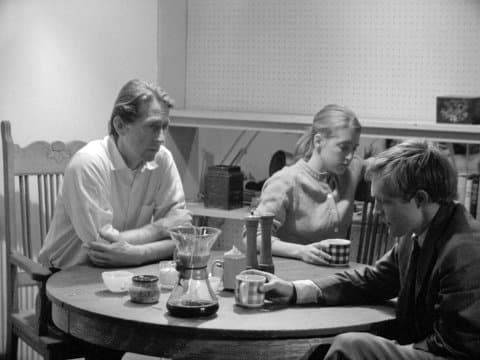
This year the Viennale are screening a retrospective of American filmmaker Robert Kramer, who comes from roughly the same stable as Chris Marker and Jonas Mekas in his style and ideology.
We are told in the festival press brochure that Robert Kramer (1939- 99) first appeared on the scene in the early 1960s when he became a leading proponent in the independent film movement of the era, most of his work was political and from a left-wing perspective.
Growing up in New York City he studied philosophy and Western European history at Swarthmore College and Stanford University where he became engaged in leftwing politics, working first as a community organiser in Newark, and then as a reporter in Latin America.
Before moving back to the States his first film arrived, a short entitled. The People’s War, the first of a trilogy exploring the radical left, and here the focus is on the guerrilla movement in Venezuela. In New York he founded Newsreel, an underground media collective which produced some sixty documentaries and short films about radical political subjects and the anti-war movement.
It was during this time that Kramer developed his highly distinctive cinematic style, a blending of fiction and documentary filmmaking. By the early 1980s he had moved to France, where his work was treated much more seriously than in his homeland and remained there until he died in 1999.
THE EDGE, the second of Kramer’s trilogy on the ‘Radical New Left’ is shot in black and white on 35mm and sees a cast of non-pros play a group – nine men, four women – of rather pleasant and well-spoken ‘young revolutionaries’, the men dressed conservatively in sports jackets, white shirts and ‘slacks’ (as they used to call them back in the day). Mostly un-employed and directionless (one is potter, another works in a factory) they are disgruntled in a very passive way, and their gripe centres on the US government’s intensification of bombing Vietnam. A placid lot, they mooch around town and on windy beaches, talking endlessly of a desire to change the world, but none of them looks like they could kill a fly.
Eventually, Dan, the most disenchanted, is galvanised into action in his goal to kill the president. His thought processes are worked up over six days, announced in intertitles, and sadly end in tragedy but the tone is thoughtful and tentative throughout rather than vehement or angry. Worth seeing for the period details. @MeredithTaylor
In The Country (1967) and ICE (1969) make the trilogy, screening at this VIENNALE 2024